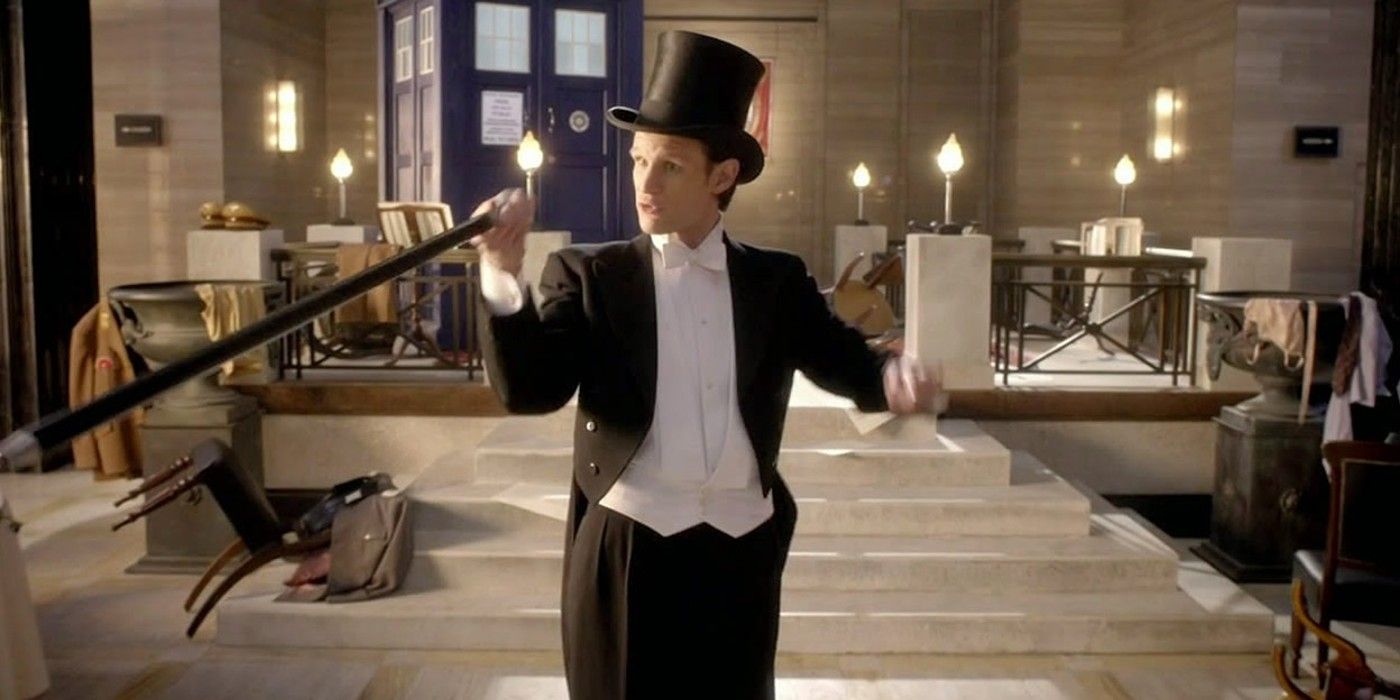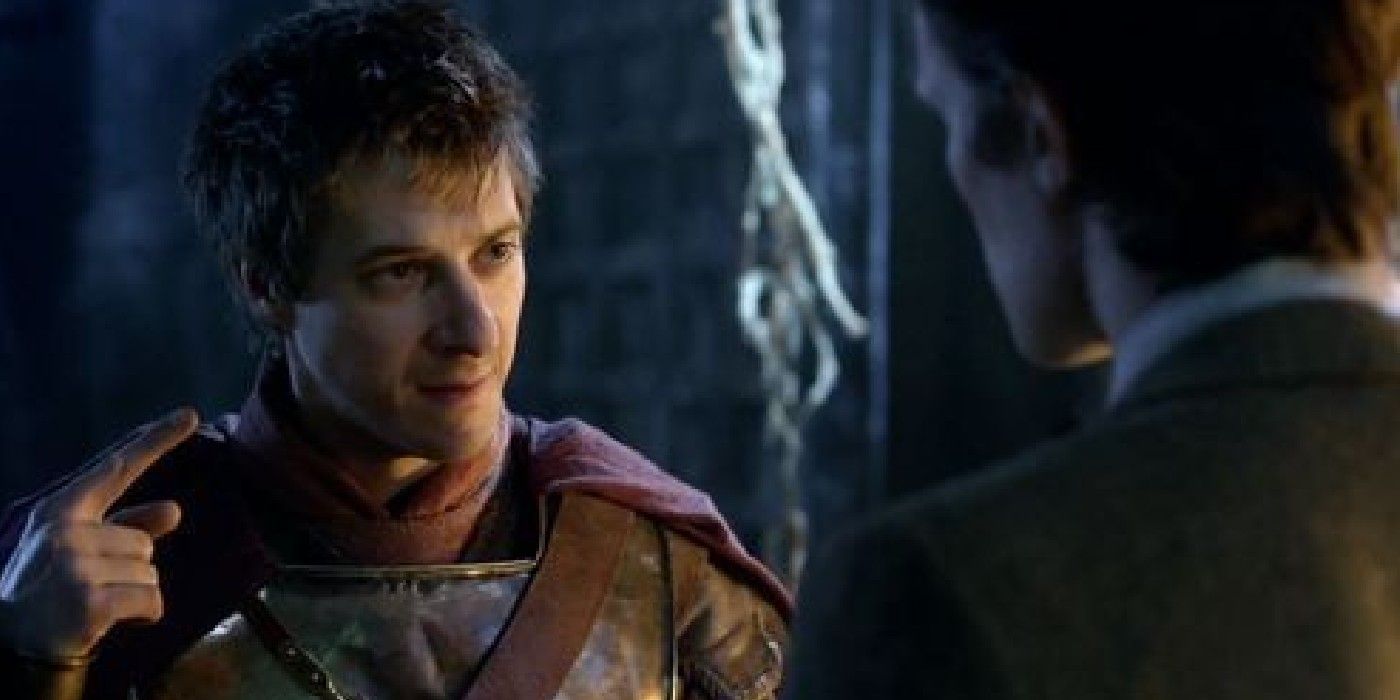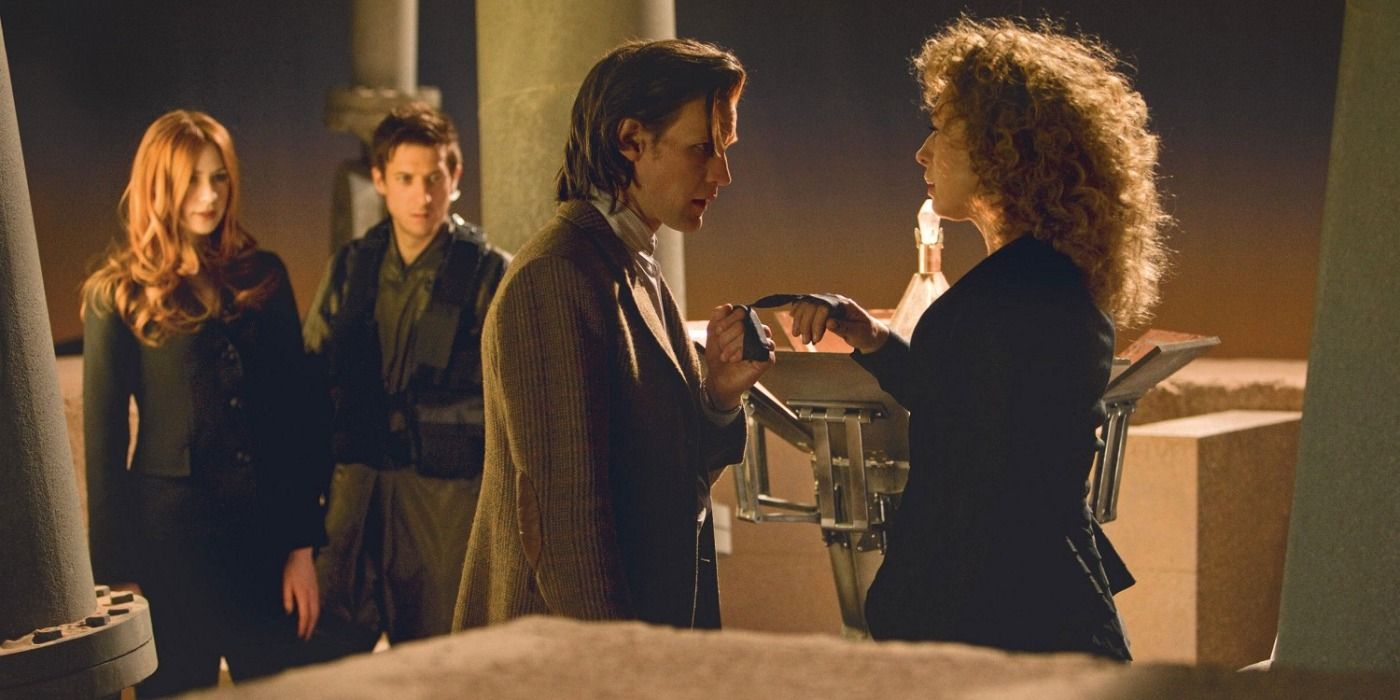In Doctor Who, the Doctor frequently creates rules for his companions or guidance that he follows himself, with the Eleventh Doctor establishing significantly more rules than any other iteration. Since the modern revival, the Doctor has been the last of his kind, which gives him both an extreme amount of survivor’s guilt and somewhat of a god complex, as he is generally more advanced than any enemy he might face. While most other versions of the Doctor created rules to keep their companions safe, many of the Eleventh Doctor’s rules come across as a way to keep himself and those like him in check.
The Eleventh Doctor had a heartbreaking perspective on himself and the world around him, which became increasingly clear in his darker moments. In season 6, episode “A Good Man Goes To War,” the Doctor explained the fundamental connection between his rules and his sense of self-hatred, explaining, “Good men don’t need rules. Today is not the day to find out why I have so many.” By exploring each of the Eleventh Doctor’s rules and how they applied to himself and his companions, it’s possible to get a clearer picture of how he saw himself and why he made the decisions he did.
1 “Don’t Wander Off”
A rule borrowed from the previous versions of the Doctor, “Don’t Wander Off” became a consistent rule across all versions of the Doctor and was used by the Ninth, Tenth, Eleventh, and Thirteenth Doctors. Within the Eleventh Doctor’s run, the rule was mentioned in “The Eleventh Hour” (season 5, episode 1), “The Rebel Flesh” (season 6, episode 5) and “Nightmare in Silver” (season 7, episode 12) as he warns his companions of the dangers that lurk around every corner so they shouldn’t allow their curiosity to get the best of them without his presence
Often, the Doctor’s primary concern with his companions was their safety, which was especially important since many Doctor Who modern companions tragically died while traveling with the Time Lord. Given how Davros had mocked the Tenth Doctor for letting so many people die for him, it was more important than ever for the Eleventh Doctor to establish safety first. By having the Doctor’s first rule be one used by previous versions, the writers were able to quickly communicate that he had begun to learn from his mistakes and was taking a new approach to traveling.
2 “The Doctor Lies”
“The Doctor Lies” was a rule explained by River in season 5, episode 13, “The Big Bang,” and became one of the most defining parts of the Eleventh Doctor’s tenure, particularly regarding the Doctor’s relationship with companions Amy, Rory, and River. After being introduced by River when the Doctor lied about his own death, the rule would be repeated in season 6, episode 8, “Let’s Kill Hitler,” season 6, episode 13, “The Wedding of River Song,” and season 7, episode 5, “The Angels Take Manhattan.” In each case, the Doctor lied about what was coming in order to protect his friends and give them freedom to make their own decisions.
Given how David Tennant’s Tenth Doctor was figured as a romantic hero, emphasizing that the Doctor lies was a great way to establish the Eleventh Doctor in a darker light. While none of the Doctor’s lies were malicious, they spoke to a deceptive nature in the character. The Eleventh Doctor’s arc was all about change, and this rule helped to distinguish Smith’s Doctor from his counterparts and suggest a darker side that would be explored in more depth during Capaldi’s run.
3 “There Is Always A Plan”
“There Is Always A Plan” was established as the Eleventh Doctor’s third “First Rule” in the comic story First Rule, and while it was never discussed on-screen, it does a good job of summarizing both Matt Smith’s Doctor and Steven Moffat’s writing style. The Eleventh Doctor had a wild energy about him that made everything he did seem fully improvised (such as when he caused a distraction by literally yelling, “Look at me, I’m a target!“). However, it was always eventually revealed that he had a complex plan in the works.
Similarly, Steven Moffat tended to write Doctor Who in a long arc format, with tiny details building up to major reveals in the finales. Moffat even made his own fan theories canon 16 years later, showing that his entire career was a scheme to leave his mark on Doctor Who. For all the chaos that tended to come in the Eleventh Doctor’s run, both he and Steven Moffat always had an impressive plan.
4 “Never Run When You Are Scared”
Introduced in season 6, episode 8, “Let’s Kill Hitler” as Rule 7, “Never Run When You Are Scared” provides a new perspective on bravery within Doctor Who. This rule came while the Doctor was begging River to help him save Amy and Rory, and it proved that even when the Doctor was dying and helpless, he was trying to care for others. Running has been an iconic part of modern Doctor Who, particularly for the Tenth Doctor, so it seems like an odd choice to suggest that it is the wrong decision. However, this rule has more to do with emotional strength than physical threats.
River Song had a complicated timeline, and this episode was her first real introduction to the Doctor. He provided her with rules that would help her to become the River Song everyone loved, and that included an emotional vulnerability that she didn’t yet have while living as Mels. She had to open her mind to the fact that she was going down a dark path and that she could be loved completely. While the Doctor struggled with emotions himself, he lived by the ideal that caring for others required knowing when to stay.
5 “Never Ignore A Coincidence. Unless You’re Busy. Then Always Ignore A Coincidence”
Between seasons 5 and 7, Doctor Who plots were convoluted but always built up to something important, making “Never Ignore A Coincidence” a message to the audience as much as it was to the characters. This rule was introduced in season 5, episode 12, “The Pandorica Opens,” when the Doctor noticed the many connections between Amy’s childhood and their latest threat. Sure enough, the Pandorica Alliance had used Amy’s life as inspiration for their perfect scheme.
While this rule was never outright stated again, it remained prevalent as a theme through the next several seasons, particularly during the “Impossible Girl” arc in season 7. Clara kept showing up throughout time, and while the Doctor has run into identical-looking characters in his adventures, the coincidences made no sense. However, the addendum adds a dash of humor onto the rule, because while the Doctor may want to work at a puzzle until he figured it out, the problem of the moment always took precedence.
6 “Never Knowingly Be Serious”
For as much as the Eleventh Doctor acted lighthearted, Matt Smith’s portrayal contrasted Tennant’s in that his version of the Doctor seemed actively frightened of his own potential. When he wasn’t actively infantilizing himself, he came across as a broken old man, made dangerous by a hidden rage. When he saw himself in Mels in season 6, episode 8, “Let’s Kill Hitler,” he began listing off his rules as a way to make sure she held herself to the same standard.
The Doctor was dying and saw his best friends in danger, so he stopped to change into a suit and use a sonic cane. When he was trying to show villains that they wouldn’t win, he threw out snappy one-liners. As the Silence and Madame Kovarian demonstrated, the Doctor was the most dangerous man in the universe when he was angry. Because of that, he dedicated himself to “Never Knowingly Be Serious,” because the alternative was that he fully acknowledge his own darkness, potentially even giving into it.
7 “Always Waste Time When You Don’t Have Any”
The Doctor introduced “Always Waste Time When You Don’t Have Any” in season 6, episode 8’s “Let’s Kill Hitler” to explain why he was still putting on a performance while he was dying, and while it was not mentioned again, it defined the Eleventh Doctor and all his companions’ perspectives toward death. For the Doctor himself, he did everything he could to delay the inevitable, pushing off taking River to Darillium and procrastinating Trenzalore for himself. While he eventually accepted his regeneration, the Eleventh Doctor was known for stalling.
This perspective transferred to the companions that were influenced by the Eleventh Doctor, as each companion faced death on Doctor Who and found a way to delay it. Amy and Rory chose to die by Weeping Angel, which gave them the opportunity to live out the rest of their lives together. River and the Doctor spent 24 years together before she went to the Library. Clara, who had lived endless lives, was extracted in the last second before her death, becoming functionally immortal. As River said in the 2015 episode “The Husbands of River Song,” “Happy ever after doesn’t mean forever. It just means time.“
8 “Time Is Not The Boss Of You”
The final rule established by the Eleventh Doctor was that “Time Is Not The Boss Of You” – a rule which specifically addressed the Eleventh Doctor’s relationship with River but that also applied to the complexity of the Doctor’s relationship with time as a whole. The Doctor established the rule about himself in season 5, epsiode 4, “The Time of Angels” before sharing it with Mels in season 6, episode 8 “Let’s Kill Hitler,” essentially giving both of them the option to reject the pre-defined relationship they would have with one another. With that rule in place, their marriage became more about choice than force.
On a larger scale, the idea of fixed points was incredibly significant on Doctor Who, as both the Tenth and Eleventh Doctors found themselves fighting against moments they could not control. But where Tennant’s Doctor stood in open defiance of the laws of time, Smith’s version learned to work around them, creating paradoxes and exploiting loopholes. Though time travel doesn’t work without having rules, the Eleventh Doctor learned to live by his own rules, making the world work for him with a touch of defiance and an excessive amount of self-control.









